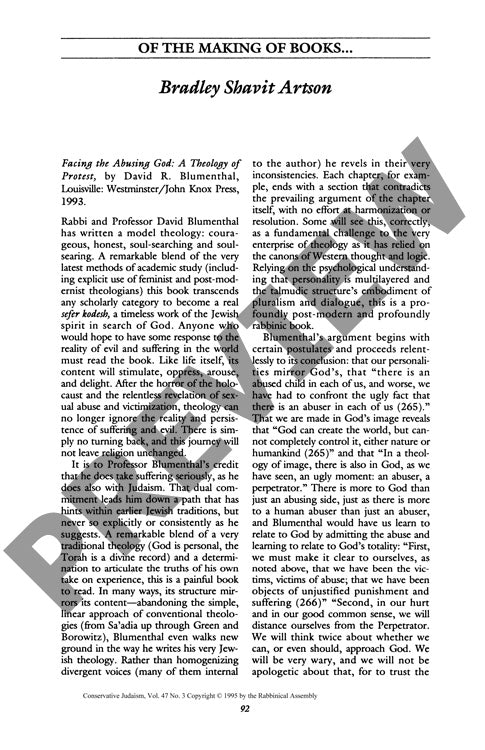Of the Making of Books
Couldn't load pickup availability
How can Jewish theology reconcile faith with the realities of suffering and divine absence after the Holocaust? Two groundbreaking works offer radically different answers: David R. Blumenthal's "Facing the Abusing God" daringly portrays God as both abusive and nurturing, while Harold M. Schulweis' "For Those Who Can't Believe" reconstructs traditional concepts through naturalistic interpretation. Through critical theological analysis and comparative examination of post-Holocaust Jewish thought, this review explores how Blumenthal combines post-modernist approaches with rabbinic pluralism, abandoning linear arguments for multilayered, contradictory presentations that demand believers protest divine abuse while maintaining relationship. In contrast, Schulweis develops a "theistic humanism" that reframes miracles, revelation, and divine presence for religiously disaffected, scientifically-minded Jews. While Blumenthal's innovative theology problematically minimizes human responsibility and focuses narrowly on human suffering, Schulweis' naturalistic approach, though accessible to rationalists, offers limited appeal for mystical seekers. Together, these works represent significant theological contributions, providing distinct frameworks for engaging questions of faith and divine relationship in an era shaped by unprecedented catastrophe.

More Information
-
Physical Description
-
Publication Information
Published 1995
ISBN
-
Publication Credits
Bradley Artson

